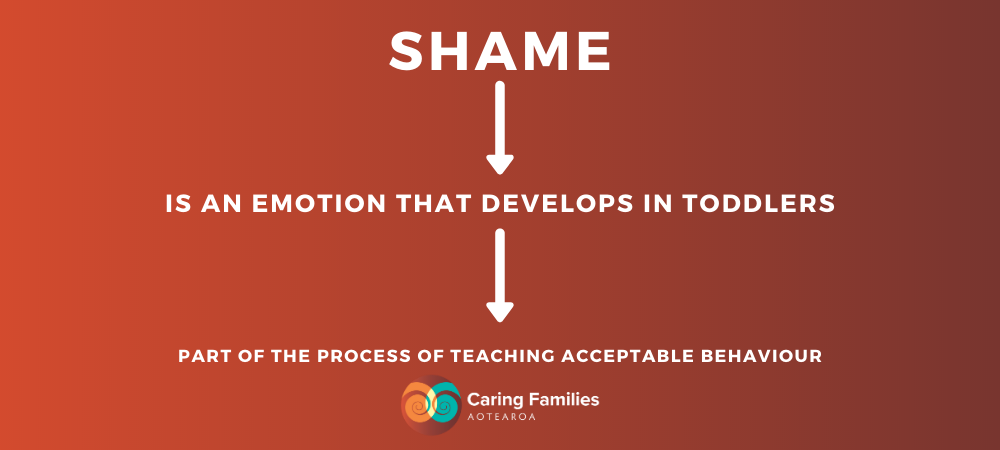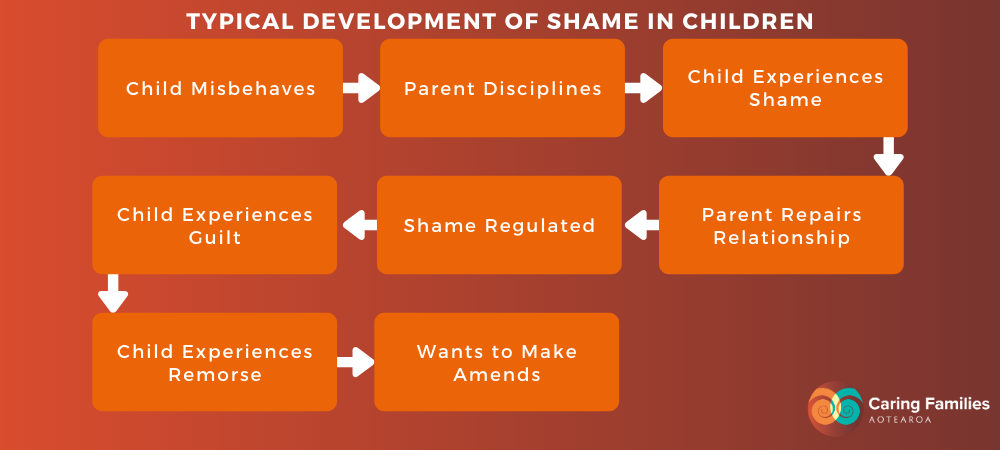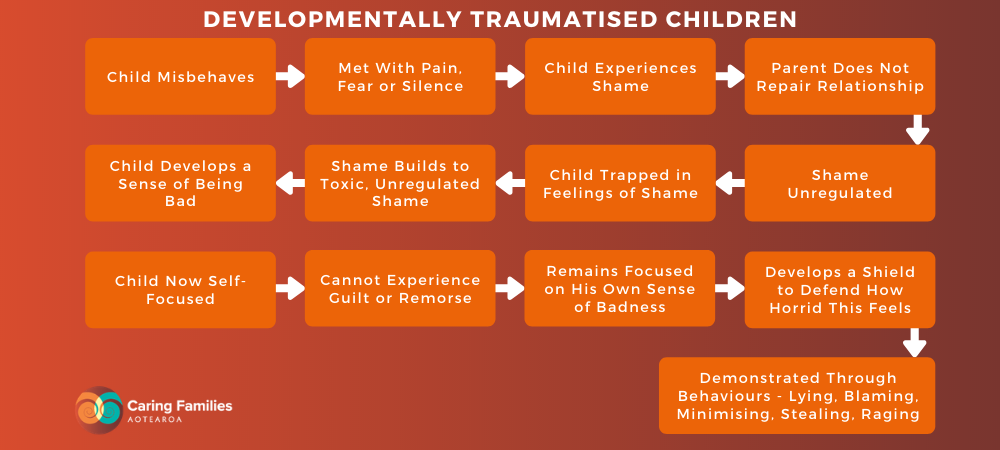Shame is a complex emotion that develops later than the development of more straightforward emotions such as anger, joy or sadness. It is part of normal, healthy development, part of the socialisation process.
Healthy development of shame and guilt
Shame is an emotion that develops in toddlers at the same time as parents are starting to provide boundaries and discipline. The experience of shame is part of the process of teaching children acceptable behaviour. This is done through attunement – break – repair sequences.
Attunement represents the emotional connection. Breaks to this connection are experienced as shame and can happen for a range of reasons. The parent might be distracted by other things, or experience some irritation, frustration or other defensive response.
However this break occurs, it is important that the parent then attends to relationship repair. This communicates his continuing love for the child and demonstrates that even when things go wrong the relationship can remain strong. This regulates the shame and returns the child and parent to a state of attunement again.


When the healthy development of shame does not happen
When children are not helped to manage shame by their parents, they become overwhelmed by these feelings. This impacts on their emotional development. Without parental support, the child has to find alternative ways of managing the overwhelming sense of shame that he or she is experiencing.
When children have not had the experience of appropriately graded doses of shame, and the support and reassurances needed to help them manage this, the shame engulfs them. they feel alienated and defeated, never quite good enough to belong. Children are trapped in shame. They feel abandoned and the shame becomes toxic. This leads to a state of development within which children experience difficulty in both regulating emotion and thinking rationally. Children are left unable to respond flexibly or to control impulses.
Children with shame based difficulties often resist relationship and therefore do not get support with their experience of shame. Parenting these children therefore needs to focus on developing a relationship before management of behaviour.

When a child experiences such trauma reactions they will be experiencing high levels of fear, often accompanied by distrust of the caregiver. These children need:
- to feel safe
- stability with supportive caregivers
- structure, predictability and nurture
- opportunities to talk about the experience
Children may use play and drawing to help them understand past of present experiences. Older children may also find writing and drawing helpful in coping with the experience of trauma.
“Unlike guilt, which is the feeling of doing something wrong.
Shame is the feeling of being something wrong.”
